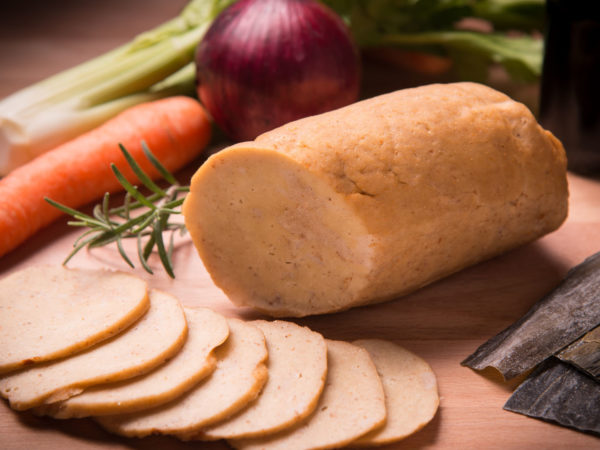Hyperkalemia: Too Much Potassium?
I was a vegetarian for many years but have recently become hyperkalemic so I have had to reduce my potassium intake and avoid beans as a protein source. I have thought of substituting seitan, but I am not sure of its protein value or of its level of potassium. Do you recommend seitan as a protein source, and is it low in potassium?
Andrew Weil, M.D. | August 2, 2010

Potassium is an essential mineral needed for the normal functioning of the heart, kidneys, muscles, nerves, and other organs, as well as for regulation of the body’s fluid balance, its acid-base balance, and blood pressure. Hyperkalemia is a higher than normal level of potassium in the blood (the normal range is between 3.6 to 4.8 milliequivalents per liter (mEq/L)). It is important to know the cause of hyperkalemia, because it can signify a serious medical problem. The most common causes are acute or chronic kidney failure. If that’s the case, you’ll need drug treatment to reduce your potassium levels. Hyperkalemia can also be caused by certain medications, including angiotensin-converting enzyme (ACE) inhibitors (for lowering high blood pressure), non-steroidal anti-inflammatory drugs, and blood thinning agents such as heparin. It also can result from alcoholism, type-1 diabetes, or excessive use of potassium supplements.
I discussed your question with Randy Horwitz, M.D., medical director of the Arizona Center for Integrative Medicine, who says that hyperkalemia is uncommon because the body (through the kidneys) prevents potassium from accumulating. He notes that higher than normal potassium isn’t usually due to increased dietary intake of potassium, unless it is quite excessive or a person has kidney disease. The body can adapt to gradually increasing potassium intake to avoid toxicity, but if blood potassium level rises above 6.0 mEq/L, it can be life-threatening, and requires immediate treatment.
(By the way, a low level, hypokalemia, can often be corrected by increasing the amount of potassium in your diet or by taking supplements. I don’t, however, recommend taking potassium supplements except as prescribed by a physician.)
Seitan, a vegetarian meat substitute, is made from wheat gluten and is a good source of protein (it provides 23 grams of protein per 1/3 cup). It is low in fat and sodium and contains no potassium. You can use it in place of other vegetarian sources of protein such as tofu or tempeh which do contain potassium.
Andrew Weil, M.D.
More information on potassium.









